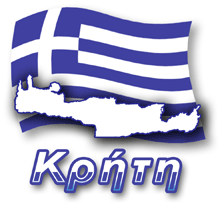
 2024-04-09 20:16:22
2024-04-09 20:16:22
Interesting conclusions for the tourism industry come from research conducted by Accor. Almost 20% of respondents in Europe declare that they will deliberately go on holiday outside the peak tourist season to avoid extremely severe heat. The research results confirm the observations of the largest tour operators in Europe and the USA that climate change is having an increasing impact on the preferences of travelers planning to visit the Mediterranean region.
Recent years have brought exceptionally long waves of above-average high temperatures to the countries of southern Europe during the high tourist season. When thermometers show above 40 degrees Celsius, most vacationing people only think about immersing themselves in the water, abandoning plans for sightseeing and other forms of active recreation. Additionally, very high temperatures unfortunately favor fires, so for safety reasons, paths, trails and protected green areas are preventively closed.
Tourists who can flexibly approach the timing of their holiday start to avoid months characterized by very high temperatures in favor of months with milder climatic conditions. The ever-increasing popularity of the early and late season is becoming more and more visible, especially in relation to the preferences of tourists in earlier years. It is estimated that this year and in the following years, this change will become even more pronounced.
Additionally, an even larger group of respondents, as many as one in three respondents (32%), claim that they will go on holiday outside the peak season due to savings. Outside the high tourist season, prices in hotels and restaurants are much lower compared to July and August.
The above trends concern not only Greece, but also Spain, Italy and Portugal. In line with new standards, the offer of large tour operators is also starting to change. Various types of holidays in southern Europe, available all year round, are increasingly appearing in travel agency catalogues.
Although it seems that extending the tourist season is an excellent way to solve the problems described above, it also brings with it various organizational challenges. Due to the significant extension of the tourist season, the problems with the shortage of employees in the hotel and catering industry become even more severe. Additionally, if the number of tourists does not increase significantly, and only the date of their arrival increases, all operational costs increase. Planning holidays for employees in companies working in the tourism sector is also becoming problematic. Finally, it is worth mentioning the less predictable weather, which can surprise many tourists in both spring and autumn.
 2024-04-09 20:16:22
2024-04-09 20:16:22
Komentarze
komentarz z
Upały to też ale ogromna ilość turystów sprawiają, że w sezonie to nie jest wypoczynek tylko walka: o miejsce na plaży, o dobre miejsce podczas zwiedzania aby zrobić zdjęcie. To podwójnie męczące.
komentarz z
Agnieszka Mielcarz To prawda. W wielu miejscach na Krecie jest problem z overtourismem.
komentarz z
Czerwiec to wg mnie najlepszy czas na wakacje np. w Grecji czy Chorwacji. Ze względu na bombelki, staramy się wyjeżdżać w ostatnim tygodniu czerwca. Choć byłem na Krecie w 2021r. w drugim tygodniu lipca to pogoda była idealna, a spotkałem naszych rodaków, którzy będąc w czerwcu mieli wówczas straszne upały.
komentarz z
Kto by się spodziewał, że zmiana klimatu na coś się przyda?
Grecja nawet latem ma wiatr i nie ma tylu turystów co w Hiszpanii
W Grecji (a mam tu na myśli swoje ulubione wyspy czyli Kos, Kreta, Rodos) jednak bym preferował sezon (15 czerwca - 15 września). Czemu?
1) meltemi sprawia że upał nie jest uciążliwy, na Krecie pod koniec sierpnia (20-30 sierpnia) w Stalidzie nie włączaliśmy w ogóle klimy; w mieście Rodos w sierpniu czasem wieczorem długi rękaw sie przydał; na Kos w lipcu chwilami (przy podobno 33 stopniach) raz tak wiało że lepiej ręcznikiem było się czasem przykryć :)
2) nawet w szczycie sezonu (może poza Hersonissosami) nie ma takich tłumów jak w Hiszpanii
3) przed 15 czerwca - nie zawsze ciepła woda; wrzesień oczywiście jest ciepły i słoneczny ale przy 23-24 st. wieczorem (Kos, Rodos) przyda się czasem nawet sweterek; i we wrześniu też nawet jeśli wg tabelki woda ma 25 stopni to tez juz jakis wietrzyk, chłodek czasem się wyczuje; w październiku w Ierapetra mimo fajnej pogody - minusik za to że jakoś nic tam się nie działo..
4) na wyspach greckich w lipcu i sierpniu dzieki wiatrowi upał bywa znośniejszy niż na Cyprze czy w Turcji we wrześniu; oczywiście - rózne są lata, różne dni, rózne strony wysp itp.;
5) niestety zima w Grecji jest mało słoneczna - średnio 4 godziny słońca w styczniu w Heraklionie przy np. 6 w Alicante.
Biorąc pod uwagę kwestię znośności upałów, ilości turystów, słońca i cen - moje podejście jest raczej takie, że zima wiosna czy jesienią lepiej do Hiszpanii a w lecie do Grecji.
Od kilkunastu lat unikamy czerwca, lipca i sierpnia, ale jak zrobi się to popularne to chyba przestawimy się na kwiecień i październik
komentarz z
Dokładnie tak właśnie spędzam kwietniowy urlop na Krecie i jest cudnie
Tylko że wtedy trzeba będzie przełożyć pierwszy wyjazd w roku z połowy marca na połowę lutego - niestety wtedy dzień jest dość krótki.
Wypełnij poniższy formularz aby dodać komentarz
lub kliknij w poniższy link aby skorzystać z możliwosci komentowania przez facebooka:
https://www.facebook.com/crete.poland/posts/814446650729601